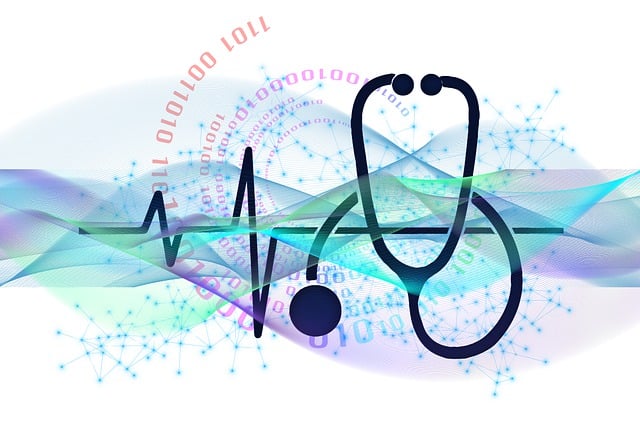Healthcare marketing services are integral to modern medical communication, leveraging a mix of SEO strategies, multimedia content, and influencer partnerships to enhance patient engagement, educate on health topics, and establish credibility. These services ensure compliance with healthcare regulations like HIPAA while adhering to ethical standards that protect consumer privacy and trust. By optimizing for high-volume keywords and incorporating authentic testimonials, original research, and medically reviewed content, these services help healthcare providers increase their online presence and reach target audiences effectively. The integration of diverse content formats and strategic influencer collaborations allows healthcare marketers to navigate the complex needs of patients and the healthcare sector, delivering a return on investment through informed and ethical marketing initiatives.
In an era where information is abundant yet fragmented, healthcare marketing services stand at a pivotal point to disseminate accurate and beneficial content. This article delves into the transformative power of content marketing within the healthcare sector, offering insights on creating a strategy that resonates with healthcare audiences. We explore the nuances of leveraging educational materials to establish trust, the impact of patient stories, and the integration of multimedia for an immersive patient experience. Additionally, we address SEO best practices to ensure content reaches its intended audience effectively. Navigating the complex landscape of compliance and ethical considerations is also paramount, ensuring that marketing efforts align with the integrity of healthcare services. Join us as we unravel the intricacies of content marketing in healthcare and its potential to improve patient engagement and outcomes.
Understanding the Role of Content Marketing in Healthcare

In the realm of healthcare, content marketing serves as a pivotal tool for engaging patients, informing the public, and establishing thought leadership among healthcare providers. By leveraging healthcare marketing services, organizations can craft compelling narratives that resonate with their target audience. These services encompass a wide array of content formats, from educational articles to informative videos, all designed to provide valuable insights into health-related topics while subtly promoting the services or products on offer. The strategic dissemination of such content across various platforms not only enhances brand visibility but also fosters trust and credibility by positioning healthcare providers as knowledgeable authorities in their field. This approach ensures that the content is tailored to address the specific needs, concerns, and questions of potential patients, thereby creating a more personalized and relevant experience.
Moreover, healthcare marketing services facilitate a two-way dialogue between healthcare providers and consumers. By consistently delivering high-quality, informative content, these services can effectively educate the audience, improve health literacy, and influence behavior in a positive manner. This educational content is key to demystifying medical topics, making complex information accessible, and empowering individuals to make informed decisions about their health and well-being. In doing so, healthcare organizations not only fulfill an educational role but also demonstrate their commitment to the community’s health and welfare, thereby strengthening patient relationships and fostering a sense of loyalty towards the brand.
Crafting a Content Strategy Tailored to Healthcare Audiences

In the realm of healthcare marketing, crafting a content strategy that resonates with audiences is paramount for success. Healthcare marketing services must understand the unique needs and concerns of their target demographic to effectively engage them. This involves creating content that is not only informative but also empathetic and patient-centric. By leveraging industry insights and medical expertise, healthcare marketers can produce compelling narratives that address common health questions and concerns, thereby positioning themselves as trusted authorities in the field. Tailoring content to various stages of the patient journey—from awareness to consideration, decision, and post-decision—ensures a consistent and educational experience that guides potential patients through their healthcare decisions with care and precision.
Furthermore, healthcare marketing services must adapt their strategies to align with the latest digital trends while maintaining compliance with health information privacy regulations. This means utilizing content formats such as informative blogs, engaging videos, and interactive infographics that simplify complex medical information. By integrating SEO best practices and employing relevant keywords like ‘healthcare marketing services’, these efforts enhance visibility in search engine results, thereby reaching a broader audience who are actively seeking healthcare solutions. A well-executed content strategy not only raises brand awareness but also fosters trust and loyalty among healthcare audiences, ultimately driving patient engagement and satisfaction.
Leveraging Educational Content to Position as a Trusted Authority

In the realm of healthcare marketing services, leveraging educational content is a pivotal strategy for positioning a healthcare provider as a trusted authority. By creating and disseminating informative and insightful content, healthcare organizations can establish themselves as reputable sources of knowledge in their field. This approach not only educates patients on various health topics but also builds a foundation of trust and credibility. For instance, providing comprehensive guides on common health conditions, wellness tips, or explanations of complex medical procedures in an easily digestible format can demystify healthcare for the layperson and foster a sense of confidence in the provider’s expertise. By consistently delivering high-quality educational content tailored to the audience’s interests and needs, these healthcare marketing services can keep patients engaged, informed, and loyal, thereby enhancing their reputation as trusted authorities in healthcare.
Moreover, integrating multimedia elements such as videos, infographics, and interactive tools into the educational content can further augment the effectiveness of this strategy. These elements not only enrich the user experience but also facilitate the understanding of complex medical information, making it more accessible to a broader audience. Healthcare providers that invest in sophisticated healthcare marketing services with a strong educational component are likely to see tangible benefits in patient acquisition and retention, as well as in their overall brand recognition within the healthcare community.
Utilizing Patient Testimonials and Case Studies for Authentic Engagement

In the realm of healthcare marketing services, leveraging patient testimonials and case studies offers a profound impact on engagement and trust. Authentic narratives from real patients resonate with potential clients, providing a transparent view into the outcomes they can expect. These firsthand accounts not only humanize the healthcare experience but also serve as compelling evidence of a provider’s expertise and the effectiveness of their services. By integrating these stories into marketing strategies, healthcare providers can foster a deeper connection with their audience, addressing concerns and showcasing successes in a way that is both relatable and influential. The use of such testimonials and case studies demonstrates a commitment to patient care and underscores the value of the services offered, positioning healthcare marketing services as a vital tool for establishing credibility and fostering trust within the community.
Furthermore, when patient testimonials and case studies are thoughtfully curated and shared across various platforms, they can amplify the reach of healthcare marketing services. These stories become a testament to the provider’s dedication and the positive outcomes achieved through their care. By highlighting diverse experiences, from routine check-ups to complex surgeries, healthcare marketers can illustrate the breadth of services and the comprehensive nature of the care provided. This approach not only engages potential patients but also reassures them that they are considering a provider with a proven track record, thereby enhancing the effectiveness of healthcare marketing services in attracting and retaining clients.
Integrating Multimedia Content for Enhanced Patient Experience

In the realm of healthcare marketing, the integration of multimedia content has become a cornerstone for enhancing patient experiences and engagement. Healthcare marketers are leveraging various forms of media—including videos, infographics, podcasts, and interactive web tools—to educate patients, demonstrate medical procedures, and convey emotional stories that resonate with audiences. These dynamic materials not only simplify complex medical information but also offer a more immersive learning experience. By doing so, healthcare marketing services can effectively bridge the gap between healthcare providers and patients, fostering greater understanding and trust. This multimedia approach allows for the visualization of data and information that text alone cannot provide, leading to improved knowledge retention and patient satisfaction. It’s a strategic move by healthcare organizations to utilize these advanced content strategies as part of their comprehensive marketing efforts, ensuring they remain at the forefront of both patient care and communication excellence.
Furthermore, the integration of multimedia content is not just about presentation; it’s a critical component in the decision-making process for patients. By providing visual representations of treatments and conditions, healthcare marketing services enable patients to make more informed decisions about their health. This approach also caters to different learning styles and preferences, making healthcare information accessible to a broader audience. The use of multimedia content can lead to increased patient engagement with the brand, fostering loyalty and a positive association with the healthcare provider’s services. As such, healthcare organizations that incorporate these rich media elements into their marketing campaigns are likely to see improved patient outcomes and a stronger market presence.
SEO Best Practices for Healthcare Content Marketing

In the realm of content marketing for healthcare, integrating SEO best practices is paramount to ensure visibility and engagement. Healthcare marketing services must prioritize optimizing content with relevant keywords that accurately reflect user queries. This involves a deep understanding of both the healthcare domain and search engine algorithms. Utilizing tools like Google Keyword Planner can help identify high-volume keywords that are pertinent to the audience’s needs, such as “healthcare marketing services.” Content should be crafted to naturally incorporate these terms without compromising readability or value. Additionally, creating a diverse range of content—including blog posts, patient testimonials, and educational videos—can enhance a healthcare provider’s digital footprint. Each piece of content should be optimized for search engines with meta descriptions, alt text for images, and internal linking strategies that guide users through a cohesive journey on the website, thereby improving the chances of ranking higher in SERPs.
Furthermore, healthcare marketing services must focus on providing authoritative, accurate information to foster trust and credibility. This is achieved by leveraging original research, citing reputable sources, and ensuring that all content is reviewed by medical professionals. By adhering to these SEO best practices, healthcare marketers can effectively reach their target audience, educate them about health-related topics, and position their services as leaders in the field. Consistency in publishing high-quality, optimized content not only aids in search engine rankings but also demonstrates an ongoing commitment to patient care and information dissemination.
Collaborating with Influencers and Healthcare Professionals to Expand Reach

In the realm of healthcare marketing, leveraging the influence and credibility of health influencers and professionals is a strategy that can significantly amplify a campaign’s reach. Collaborating with these authorities in the field not only lends authenticity to your content but also taps into their established audience, which often translates into higher engagement rates. Healthcare marketing services can facilitate these partnerships by identifying the most relevant influencers and professionals who align with your brand values and messaging. By creating content that resonates with both parties’ audiences, such collaborations can extend the impact of your healthcare marketing efforts. This synergy ensures that the information disseminated is not only informative and accurate but also trustworthy, as it comes from recognized experts within the healthcare community.
Moreover, healthcare marketing services can help navigate the complexities of compliance and ethical considerations inherent in the healthcare industry. They ensure that all influencer collaborations are compliant with medical advertising regulations while maintaining the integrity of the message being conveyed. By integrating these professionals into your content strategy, you can create a more authoritative voice for your brand, which is crucial in a sector where trust and credibility are paramount. This approach not only broadens your audience but also establishes your healthcare organization as a thought leader and a reliable source of health information.
Measuring the Impact of Content Marketing on Healthcare Outcomes

In the realm of healthcare, the integration of content marketing services has become a pivotal strategy for organizations aiming to enhance patient engagement and improve health outcomes. The effectiveness of healthcare marketing services is often gauged not just by the reach and frequency of content but also by its impact on patient behavior and health literacy. Metrics such as website traffic, social media engagement, and the number of downloads for educational materials provide immediate feedback on content performance. However, the true measure of success lies in how this content influences healthcare outcomes. By analyzing data from various touchpoints, healthcare providers can assess the extent to which their content marketing initiatives lead to better patient understanding of conditions, adherence to treatment plans, and ultimately, healthier patient communities. It’s crucial for organizations to employ advanced analytics tools and techniques to dissect the data, identifying patterns and correlations that demonstrate a tangible return on investment for their marketing efforts. These insights enable healthcare marketers to refine their content strategies, ensuring they remain aligned with the evolving needs of patients and the healthcare industry at large.
Compliance and Ethical Considerations in Healthcare Marketing Services

In the realm of healthcare marketing services, compliance and ethical considerations are paramount to maintain patient trust and adhere to regulatory standards. The healthcare industry is uniquely governed by a myriad of laws and regulations, including the Health Insurance Portability and Accountability Act (HIPAA) in the United States, which dictates how sensitive patient data must be handled in marketing materials and campaigns. Marketers in this sector must navigate these legal frameworks meticulously to ensure that all communications are compliant with privacy and security requirements. This involves a careful crafting of content to avoid any misrepresentation of treatments, drugs, or health advice, ensuring transparency and accuracy in claims made. Moreover, ethical considerations extend beyond legal compliance; they encompass the responsible promotion of healthcare services that respect patient dignity and autonomy. Marketers are tasked with the duty to present information in a manner that empowers consumers to make informed healthcare decisions without undue influence or manipulation. The use of data analytics and personalized marketing strategies must be balanced with the ethical obligations to protect individual privacy and consent, reinforcing the importance of ethical practices in healthcare marketing services.
